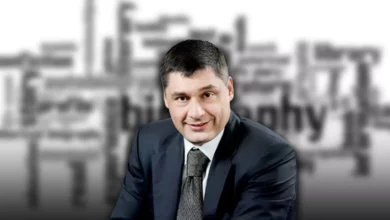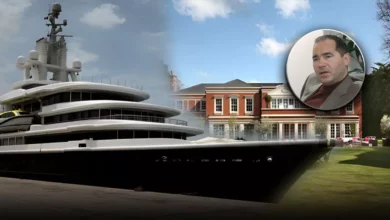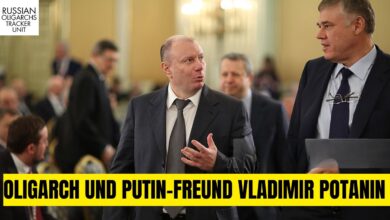Former Evraz chairman Alexander Abramov: Bio, Life, and Controversies
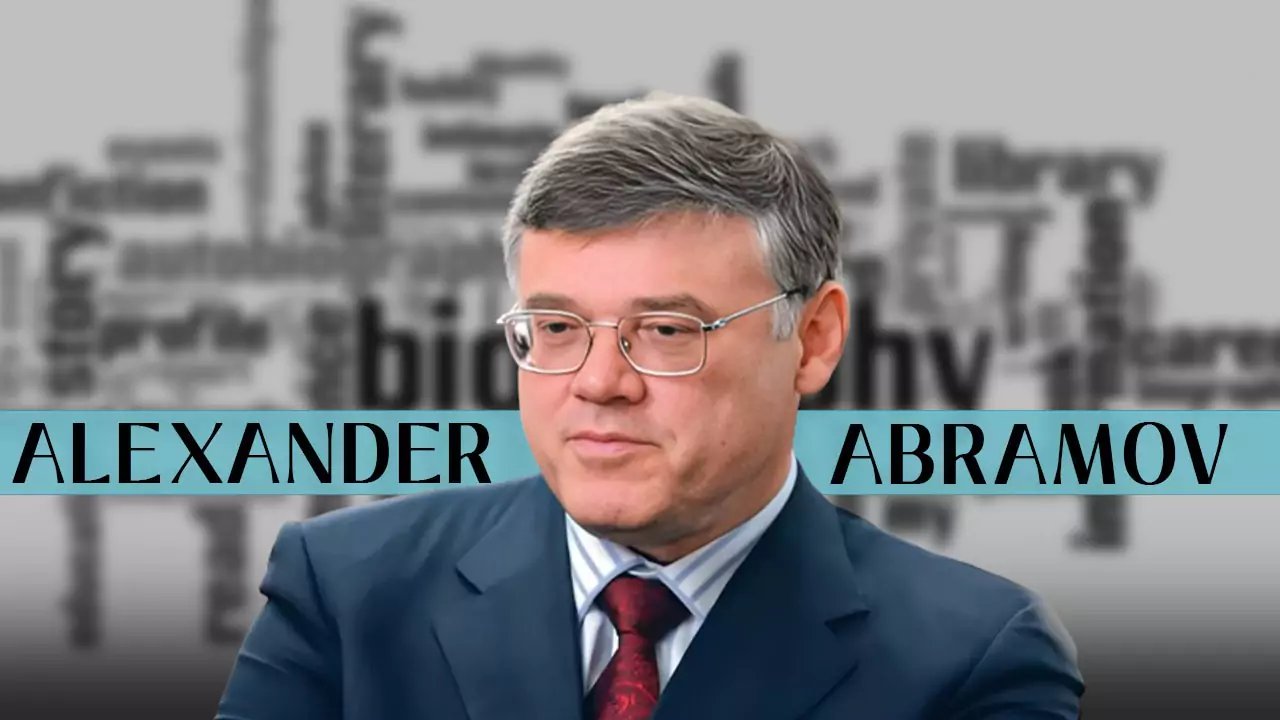
Childhood and Early Education

Alexander Abramov was born on February 20, 1959, in Krasnodar, into an ordinary Soviet family. His childhood was marked by a love for hiking and fishing, instilled by his father. From an early age, Abramov showed curiosity and a passion for exact sciences, particularly physics.
Academic Pursuits
After graduating from school, Abramov pursued higher education at the Moscow Institute of Physics and Technology (MIPT). In 1982, he earned an honours diploma from the Faculty of Molecular and Chemical Physics. Continuing his academic journey, he spent the next three years in graduate school at the Institute of High Temperatures of the USSR Academy of Sciences, defending his dissertation on the topic of “Physics and Chemistry of Plasma” and earning a candidacy in physical and mathematical sciences.
Early Career in Science
Alexander Abramov initially chose a career in science, working at the Institute of High Temperatures. His leadership qualities emerged as he quickly rose to the position of head of one of its laboratories, contributing to developments related to the space industry, including the Buran reusable shuttle.
Entry into Business
Facing financial challenges, Abramov ventured into business in parallel with his scientific career. After exploring trading and construction with limited success, he co-founded the metallurgical company Evrazmetall in 1995. This marked the beginning of his significant influence in the business world.
Rise of Evraz Group
Abramov’s leadership catapulted Evrazmetall into the EAM group, which evolved into one of the largest metallurgical holdings in the Commonwealth of Independent States (CIS) – Evraz. By 1998, he held a key position at the Nizhny Tagil Metallurgical Plant.
Brief Details about EVRAZ
EVRAZ is a global player in the steel, mining, and vanadium sectors, operating across Russia, the United States, Canada, the Czech Republic, and Kazakhstan.
They take a hands-on approach, overseeing the entire production journey, from extracting raw materials to crafting the final products. Sustainability is a key focus for EVRAZ, with a commitment to slashing greenhouse gas emissions by 35% before 2030.
Notably, the company leads the way in renewable energy integration, showcasing its dedication through a steel mill powered entirely by solar energy. This move towards cleaner practices aligns with their ambitious environmental goals.
It’s worth noting that EVRAZ has been making headlines due to recent sanctions targeting its former Chairman of the Board of Directors, Alexander Abramov. The company’s ownership structure involves a stake held by Russian oligarchs, adding an interesting layer to its narrative.
Oligarch Status and Global Expansion
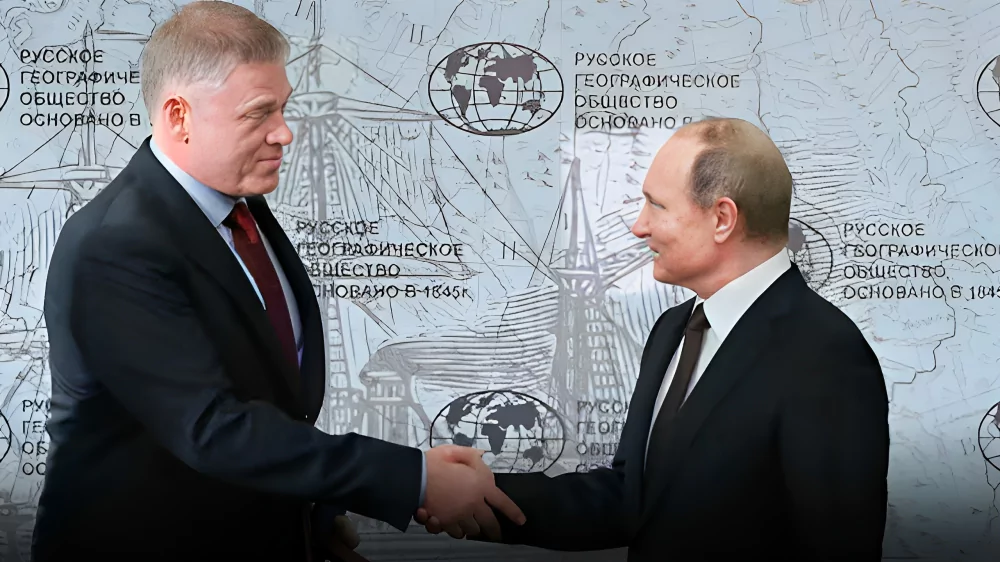
In the 2000-2010 period, Evraz Chairman Alexander Abramov assumed senior leadership roles within the Evraz Group, significantly increasing his wealth. His strategic decisions led the holding to control major enterprises not only in Russia but also in Italy, the Czech Republic, and Ukraine.
In the early 1990s, Abramov found a quick way to make money in Russia by leveraging his connections with steel mills. Instead of presenting himself as a scientist, he entered the scene as a metal trader. The move was a hit, especially considering the economic downturn and the chronic non-payment issues factories were facing.
Shifting to Strategic Acquisitions (Late 1990s)
By 1997, the trading landscape had changed, becoming less profitable. Alexander Abramov adapted by moving toward acquiring factories. He strategically swapped debt for equity in the Nizhny Tagil steel mill and secured stakes in its rail-producing plant from other shareholders.
Building a niche monopoly
In contrast to other oligarchs, Evraz Chairman Alexander Abramov aimed for a more focused approach. He set his sights on creating a monopoly for rail and steel construction products, actively seeking factories that could offer synergies to strengthen his position in this market.
Collaborating with Kemerovo
Identifying Kemerovo as a vital region for his products, Abramov collaborated with Aman Tuleev, the region’s governor. Using his trade contacts, he gained access to the region, which is home to Russia’s largest coal mines.
Turning challenges into opportunities
In 1998, facing bankruptcy, two Kemerovo factories producing the desired products were in dire straits. Abramov seized the opportunity and struck a deal with Governor Tuleev. The agreement revolved around mutual benefits: Tuleev, as a state creditor, would help appoint external managers aligned with Evraz Holdings to run the steel mills.
In return, Evraz Chairman Alexander Abramov committed to paying salaries and taxes, ensuring job security, and supporting Tuleev’s social projects. This collaboration showcased Abramov’s ability to navigate challenges, turning difficult situations into opportunities for growth and influence.
Timeline of the career of Alexander Abramov
| Year | Event |
|---|---|
| 1959 | Alexander Abramov was born on February 20 in Krasnodar, Soviet Union |
| 1982 | Graduated from Moscow Institute of Physics and Technology with an honours diploma |
| 1985 | Completed his dissertation on “Physics and Chemistry of Plasma” in graduate school at the Institute of High Temperatures, USSR Academy of Sciences, earning a candidacy in physical and mathematical sciences |
| 1995 | Co-founded the metallurgical company Evrazmetall |
| 1998 | Held a key position at the Nizhny Tagil Metallurgical Plant, part of the evolving Evraz Group |
| 2000-2010 | Assumed senior leadership roles within Evraz Group, significantly increasing wealth and expanding influence |
Net Worth and Financial Journey
Evraz Chairman Alexander Abramov‘s financial journey, as depicted in Forbes rankings, showcases fluctuations in his net worth. By 2019, he held the 20th position among the two hundred richest Russians, with a fortune of $6.2 billion. Notably, 2008 marked his most successful year with a personal capital of $12.5 billion.
Net Worth Details
| Year | Net Worth (in Billions) |
| 2014 | 3.8 Billion |
| 2015 | 4.5 Billion |
| 2016 | 3.6 Billion |
| 2017 | 4.5 Billion |
| 2018 | 5.2 Billion |
| 2019 | 6.2 Billion |
| 2020 | 5.5 Billion |
| 2021 | 7.6 Billion |
| 2022 | 5.5 Billion |
| 2023 | 6 Billion |
Legacy and Recognition
Throughout his career, Abramov received recognition, including the Order of Friendship (2015) and the “For Good Deeds” insignia (2016).
Personal Life and Philanthropy
Beyond business, Alexander Abramov enjoys a successful personal life, being married to Svetlana and raising three children. His commitment to philanthropy is evident in initiatives such as the restoration of the Valaam Spaso-Preobrazhensky Monastery and the establishment of a charitable foundation supporting young talents in the natural sciences.
Luxury and Hobbies
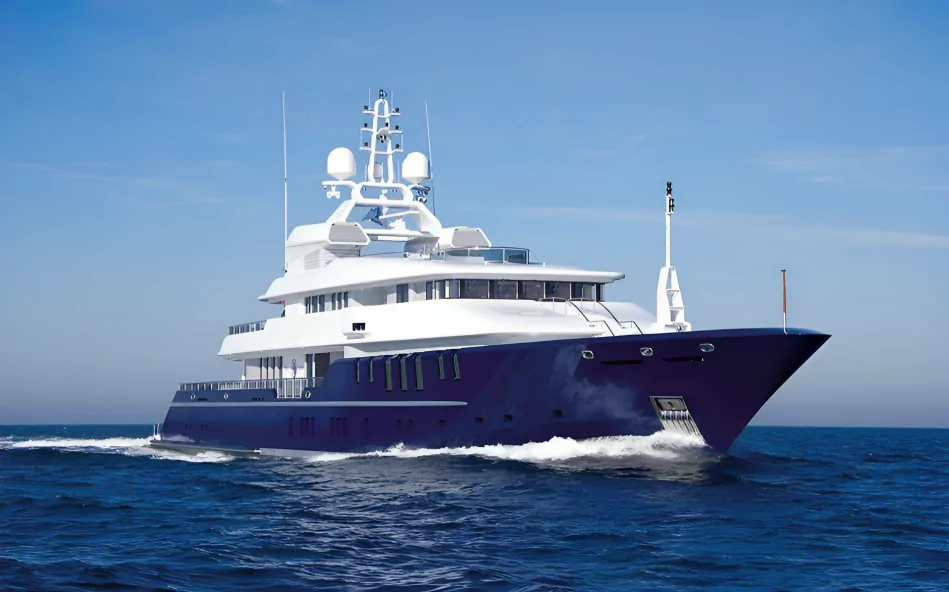
As a billionaire, former Evraz Chairman Alexander Abramov indulges in luxury, owning a yacht named “777” and an exclusive estate in New Zealand. His interests include fishing, art (particularly Russian impressionist paintings), and sports such as scuba diving and tennis.
In 2018, Abramov listed the 68-meter yacht Triple Seven for sale. However, the yacht was later spotted off the Isle of Wight in 2021, suggesting that the sale may not have gone through.
There is no recent information available about the current status of the yacht or its sale.
Citizenship
Despite being a Russian citizen, he holds a second citizenship in Cyprus since 2010. His registered place of residence is Novokuznetsk.
Recent Challenges and Resignation
Abramov faced challenges in 2022 when he and his partner Roman Abramovich were hit by UK sanctions. In March 2022, he resigned as chairman of the Evraz Group following sanctions imposed on Abramovich.
Abramov’s Challenge: Contesting Australian Sanctions in Federal Court
Sydney, Australia: In October 2022, at a Federal Court hearing, Evraz Chairman Alexander Abramov concluded his challenge against the sanctions imposed by Australian Foreign Affairs Minister Penny Wong. The sanctions, initially enforced in April by former Foreign Minister Marise Payne and later reinstated by Wong in September, targeted 67 Russian elites and oligarchs in response to Moscow’s invasion of Ukraine.
Background
Abramov, with an estimated net worth of $6.4 billion, sued Minister Wong, claiming a lack of political connections and highlighting his resignation as the chair of Evraz. In response, Wong swiftly reimposed the sanctions against Abramov after initially revoking them.
Government’s Perspective
The Australian government contended that Alexander Abramov‘s financial standing and leadership role at Evraz made it impossible for him to have any connections to the Russian government. In court, Barrister Perry Herzfeld, SC, representing Wong, contended that the sanctions did not solely apply to individuals with direct influence over foreign governments.
Indirect Influence Through Business
Even if Abramov accurately claimed to lack government influence, he could still exert influence indirectly, particularly through Evraz, as emphasized by Herzfeld. The court heard that the focus of the decision to sanction Abramov was his influence on Evraz rather than the Russian government itself.
Herzfeld argued that individuals of significance, like Abramov, didn’t lose their ability to influence others even after resigning from specific roles. He suggested that the condemnation itself might influence foreign governments through Abramov’s actions.
Government’s Defense
The government rejected Alexander Abramov‘s assertions that they made mistakes in sanctioning him, arguing that his resignation from the role of Evraz chair in March and a reference to him as the company’s co-founder were not critical errors. Herzfeld contended that there was no error of law in making the wrong finding of fact.
Sanctions Imposed on Evraz Chairman Alexander Abramov: New Zealand’s Response
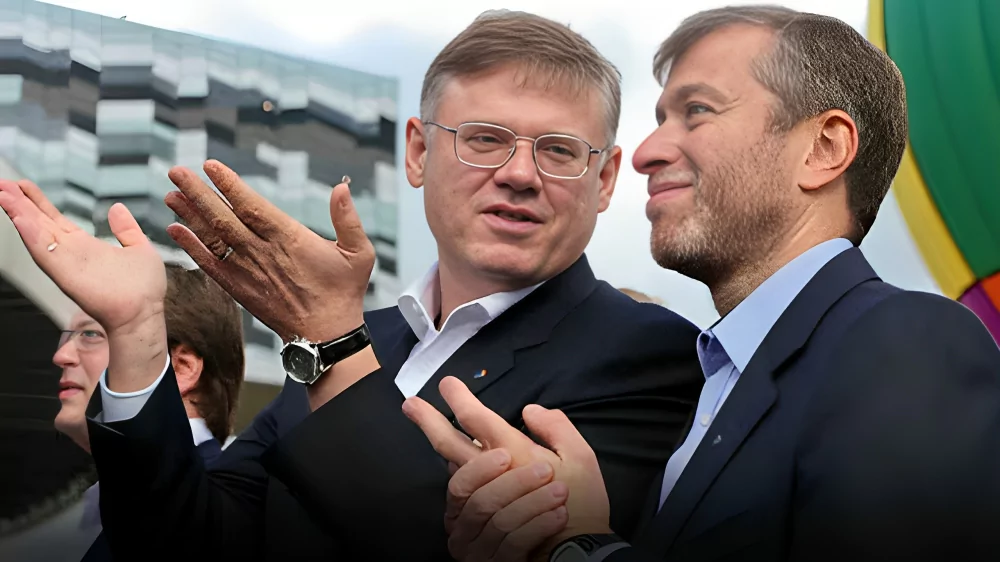
Abramov, co-head of steel giant Evraz and Abramovich, faced a travel ban in October 2022, along with restrictions on his family, aircraft and vessels. Evraz, while holding a significant role in Russia’s railway infrastructure, has faced controversy and denied accusations of supplying raw materials to Russian tanks.
New Zealand assets
Alexander Abramov‘s New Zealand assets, including a $41 million retreat in Helena Bay, Northland, boasting luxury amenities and a yacht, have drawn attention. The Financial Intelligence Unit’s report highlighted his ranking as the 365th wealthiest person globally, emphasizing the scale of his influence.
Sanctions Concerns
The police report in April 2022 expressed concerns that Abramov’s New Zealand interests might enable him to bypass sanctions against Abramovich, especially considering their close relationship. The report also noted Abramov’s standing among the Russian elite, making him a high-priority person of interest for sanctions.
Internationally, the implications of sanctions on Alexander Abramov remain unclear. Still, the report emphasized the risk posed by his connection to Abramovich, prompting New Zealand authorities to take action.
Sanctions Coordination
New Zealand’s approach to sanctions came under scrutiny, with the Reserve Bank advising against immediate financial sanctions, citing potential industry challenges. However, Foreign Minister Nanaia Mahuta justified the move, asserting that the Russia Sanctions Act 2022 legally justified the sanctions against Abramov.
Response and Fallout
In response to New Zealand’s sanctions, Russia retaliated with three sanctions packages affecting nearly 200 New Zealanders, including former Prime Minister Jacinda Ardern, journalists, MPs, and academics.
The Diplomatic Gambit
Mahuta, when announcing the sanctions, expressed hope that the measures would encourage Alexander Abramov to voice concerns about Russia’s war on Ukraine. However, Abramov’s lawyers maintained their client’s silence on the matter.
Summary
Alexander Abramov, born in 1959 in Krasnodar, started as a scientist, earning a degree in Molecular and Chemical Physics. In 1995, he co-founded Evrazmetall, later Evraz, a major metallurgical player globally. Abramov strategically shifted from trading to acquisitions, creating a rail and steel construction monopoly.
By 2019, his net worth fluctuated but peaked at $12.5 billion in 2008. Despite UK sanctions in 2022, Abramov faced challenges contesting Australian sanctions related to Russia’s invasion of Ukraine. New Zealand’s sanctions on him sparked concerns about bypassing measures against his partner, Roman Abramovich. Abramov’s influence extends beyond business to philanthropy, science, and global diplomatic discussions. Despite resigning as Evraz Group’s chairman, he remains a key figure in the company’s global operations, illustrating a complex and influential career.




